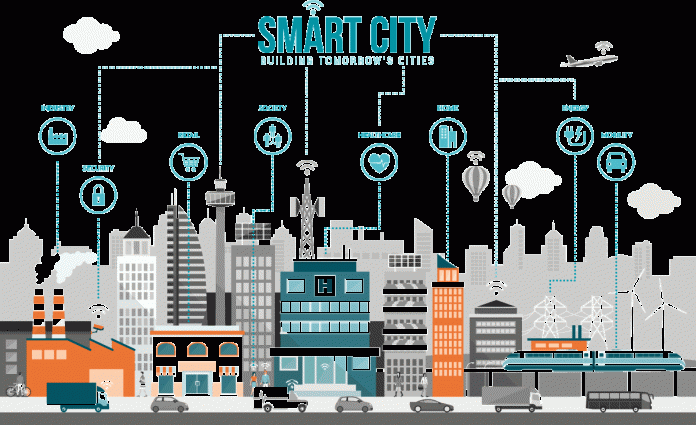
Innovative Urban Living: Smart Cities Real Estate Evolution
The convergence of technology and urban development has given rise to the concept of smart cities, and the impact on real estate is profound. Smart cities leverage advanced technologies to enhance infrastructure, connectivity, and overall quality of life. This article explores how smart cities’ real estate developments are shaping the future of urban living.
Technology Integration in Urban Planning:
Smart cities prioritize the seamless integration of technology in urban planning. From intelligent traffic management systems to energy-efficient buildings with smart grids, every aspect of urban development is carefully designed to enhance efficiency and sustainability. This integration extends to real estate developments, where technology becomes a fundamental component of modern urban living.
Smart Infrastructure and Connectivity:
Real estate in smart cities benefits from cutting-edge infrastructure and connectivity. High-speed internet, smart grids, and IoT (Internet of Things) devices are woven into the fabric of these developments. Smart buildings equipped with automated systems for security, energy management, and maintenance contribute to a connected and efficient urban ecosystem.
Data-Driven Decision-Making:
One of the hallmarks of smart cities is the emphasis on data-driven decision-making. Real estate developers leverage data analytics to understand urban trends, assess environmental impact, and anticipate the evolving needs of residents. This data-driven approach ensures that real estate developments align with the dynamic nature of urban living.
Sustainable and Eco-Friendly Practices:
Smart cities prioritize sustainability, and real estate developments play a crucial role in this commitment. Green building designs, energy-efficient technologies, and eco-friendly infrastructure are integral to smart city real estate. These sustainable practices not only reduce environmental impact but also contribute to the well-being of residents.
Enhanced Quality of Life for Residents:
The ultimate goal of smart city real estate developments is to enhance the quality of life for residents. Integrated smart technologies provide conveniences such as efficient public transportation, smart healthcare systems, and automated waste management. These enhancements collectively contribute to a safer, healthier, and more enjoyable urban living experience.
Mixed-Use Developments and Urban Planning:
Smart cities often emphasize mixed-use developments, where residential, commercial, and recreational spaces coexist in a balanced ecosystem. Urban planning in smart cities is designed to create vibrant and accessible neighborhoods. Real estate developments follow suit, offering residents a diverse range of amenities within close proximity.
Accessibility and Inclusivity:
Smart city real estate developments prioritize accessibility and inclusivity. Urban planners and developers aim to create spaces that are easily navigable for all residents, including those with disabilities. Technologies such as smart mobility solutions and inclusive design principles contribute to fostering a sense of community and belonging.
Public-Private Collaborations in Development:
The development of smart city real estate often involves collaborations between public and private entities. Governments work alongside private developers to create sustainable, technologically advanced urban spaces. These collaborations ensure that the benefits of smart city living are accessible to a broad spectrum of the population.
Real-Time Monitoring and Security:
Security is a paramount concern in urban living, and smart city real estate addresses this through real-time monitoring and advanced security systems. Smart surveillance, emergency response systems, and secure data management contribute to creating safe and secure living environments for residents.
Wasl Group’s Vision for Smart Cities:
The Wasl Group is actively contributing to the realization of smart cities through innovative real estate developments. To explore the transformative impact of smart cities’ real estate evolution and Wasl Group’s commitment to technological advancements, visit WaslInfo.org.
In conclusion, the evolution of smart cities is reshaping the landscape of real estate developments. From technology integration to sustainable practices, these smart city real estate projects are not just buildings; they are catalysts for a modern, connected, and sustainable urban future. The Wasl Group’s visionary approach exemplifies the positive impact that smart cities’ real estate developments can have on urban living.
